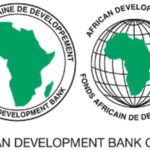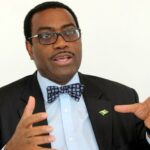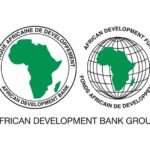Dr. Akinwumi Adesina is the 8th President of the African Development Bank (AfDB). In this exclusive interview with Daily Trust, Adesina, Nigeria’s former Minister of Agriculture and Rural Development, said he has no patience for underdevelopment having grown up in poverty. He speaks on investments and the need for African youth to focus on skills that will be relevant in the fourth industrial revolution.
When you assumed office as President of the African Development Bank (AfDB), you launched an agenda, which you called the High 5s. How far have you gone with the agenda?
Let me start from what my premise of work is. I grew up in a rural area. I grew out of poverty. So, I don’t have patience for underdevelopment. I don’t think people should wait for development. I have never seen anybody who is poor and wants to be comfortable in poverty. For me, as president of the African Development Bank it is how do we accelerate the development of the continent.
The second thing I will say is that when it comes to the issue of being President of the African Development Bank, I don’t see it as a position, I don’t see it as a job. I see it as a mission because I am driven to make sure that we can take many hundreds of millions of people out of poverty, and we can transform our continent in a way that gives us pride.
I am a big believer that if you are not ashamed of something, you won’t change it. Be ashamed of it, you will change it. I looked at the situation when I became president and I found out that Africa didn’t have electricity. I was ashamed of it. I said we were going to change it because it can’t be that since Thomas Edison developed the light bulb, we’re still struggling to light the bulb.
At the African Development Bank, we have five areas of focus, which we call the High 5s. One is light up and power Africa, to feed Africa, to industrialise Africa, to integrate Africa and to improve the quality of the lives of the people of Africa.
How have you been implementing each of the priority areas?
Let me start with the first one which has to do with electricity. We’re investing today $15 billion in the energy sector, and this is to leverage anything between $45 billion and $50 billion from the private sector to the energy sector. We are involved in financing power generation, power transmission, and power distribution. We are also involved in helping Africa to have the right energy mix so as to have enough power for industrialisation.
So, what have we done? Let me start from Nigeria and then go up the continent. In Nigeria, we have invested roughly about $400 million in the Transmission Company of Nigeria (TCN) to help to improve transmission because transmission lines are like exhaust pipes. If the exhaust pipe is broken, the fuel efficiency of your car goes down. It’s the same thing with transmission. If you have weak transmission, it doesn’t matter how much power you generate, you will lose quite a lot of it. We have also invested in helping to diversify the energy mix. We have projects that we have financed in Jigawa, which is supposed to look at solar. Sunlight is not a problem in Nigeria. The whole of the North is so hot. I worked a lot in the North. Sometimes, it can burn your skin. All we have to do is take some cables, connect to the sun and we’re fine.
We are investing heavily now to help unlock the renewable energy potential that we have. We are also investing in helping to deal with the liquidity problem that exists in the Nigeria power value chain. The Nigeria Bulk Electricity Trading (NBET) has a liquidity problem in terms of the DisCos being able to pay back. So, we provided guarantees to cover the defaults to NBET.
So, these are some of the things were trying to do to solve the problem of the power sector in Nigeria. We have also the Nigeria Rural Electrification Project, which is focused on providing electricity to well over 500,000 households in Nigeria, most of that is from mini grid and off grid systems. As you can see, our investments are quite significant in this area.
When you take a look at the African level, we have invested in what is called the Noor Ouarzazate, which is the world’s largest solar power plant in Morocco. We have done about 800 megawatts for them. We also invested in what is called Lake Turkana Project in Kenya. Its 340 megawatts. It’s the largest wind power plant in Africa and we invested in it plus the transmission lines. We invested also in geothermal energy because it can produce a lot of energy.
When people talk, they always talk about the potentials that Africa has. I don’t believe in potentials. I think the only potential that matters is potential that is unlocked.
What impacts have some of these projects had?
From 2015 to date, on power alone, we have helped to connect 16 million people to electricity. On feeding Africa, which is agriculture, we have helped to provide food security and access to modern technologies for 70 million farmers. If you take the third, that is the one about industrialising Africa, the key is how do you connect people to source of finance? So, we invest in private sector companies, but we have to connect people to get access to finance from those private sector companies. Between 2015 and now, we have helped to connect access to finance for 9 million people.
When you take a look on integrating Africa, which has to do with infrastructure, we do massive investment in infrastructure. We have helped to connect 55 million people to improved access to transport just within those few years. Without water, without sanitation, you have nothing. In 3 years, we have 31 million people connected to improved water and sanitation.
We have a very rigorous way in which we measure results. For, me, development finance is about accountability to those you are supposed to finance. I tell my guys at the bank all the time, as president of African Development Bank, I don’t have the luxury of sleeping because it is a huge responsibility to be asked to transform a continent. So, we’ve got to keep moving at the speed that people require and the accountability that is required.
The last thing I will say about the High 5s is that when we developed them, the United Nations Development Programme (UNDP) did an external assessment of the High 5s of the bank. And what did they find? They found that if Africa achieves those High 5s, it would have achieved 90 per cent of the Sustainable Development Goals (SDGs) and that Africa would have achieved 90 per cent of Agenda 2063 of the African Union. We’ll achieve them because I’m not used to failure. It has to work.

 Join Daily Trust WhatsApp Community For Quick Access To News and Happenings Around You.
Join Daily Trust WhatsApp Community For Quick Access To News and Happenings Around You.


